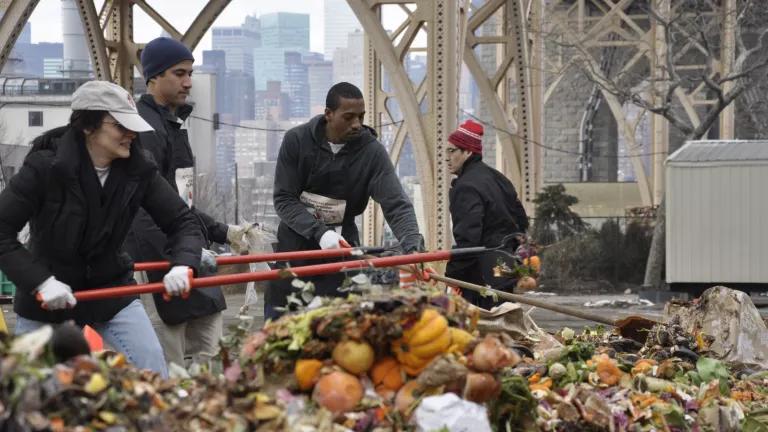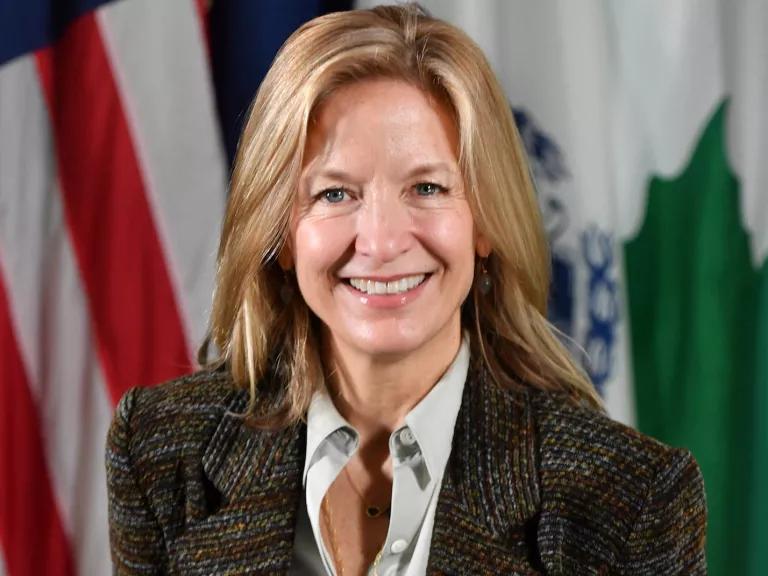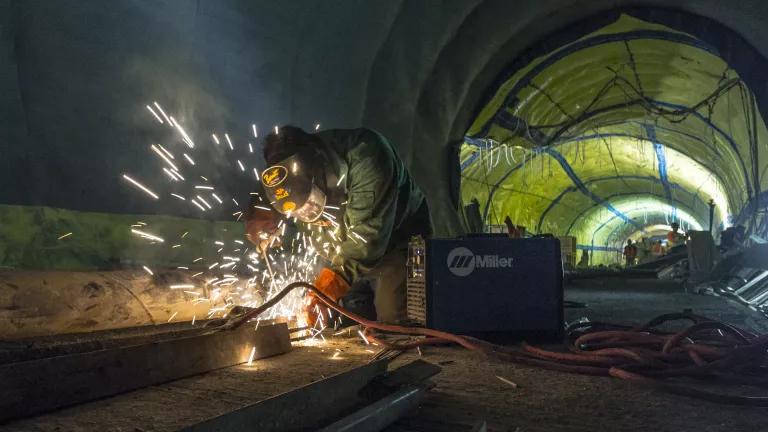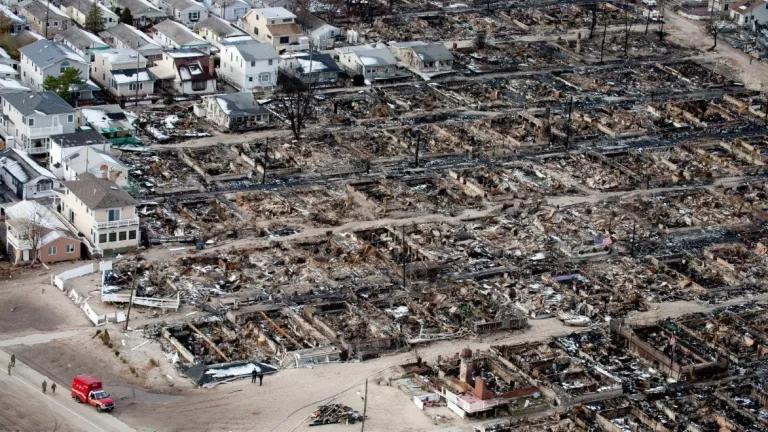NYC Parks Department Wants to Pave Paradise and Put Up a Parking Lot
A beloved community composting facility is facing eviction.

The NYC Parks Department is planning for a parking lot to replace this environmental gem—a community-supported composting facility operated by Big Reuse.
Courtesy of Big Reuse
First in a series of blogs on the importance of composting in New York City.
The New York City Department of Parks & Recreation (Parks Department) is planning to evict a nationally recognized community composting operation from its longtime home under the 59th Street bridge in Long Island City. The agency’s rationale: It needs the site for the parking of Parks Department motor vehicles.
The imminent move to bulldoze the Big Reuse compost processing operation is unwarranted, inexplicable, and inconsistent with long-standing city policy. The department recently notified the not-for-profit organization that it must vacate its site by June 30.
The eviction runs counter to city pronouncements, plans, and laws aimed at boosting the composting of discarded organic waste as a way of reducing the city’s global warming emissions, producing valuable finished compost, and cutting the roughly $200 million annual cost of exporting this material to out-of-city landfills and incinerators.
Going back to the administration of then mayor Michael Bloomberg, there has been official recognition of the wide-ranging merits of turning food scraps, yard waste, and food-soiled paper into finished compost, which is used as a natural fertilizer and soil enhancer. And in his 2023 State of the City address, Mayor Eric Adams announced that Sanitation Commissioner Jessica Tisch would be introducing a new program for citywide curbside collection of separated organics.
In June 2023, the New York City Council, under the leadership of Speaker Adrienne Adams, passed the historic “Zero Waste Act,” a legislative package that included what is now Local Law 85. It directed the Department of Sanitation to ensure full implementation of curbside collections across the city by October 2024. It emphasized the importance of diverting these organics to composting facilities and away from methane-generating landfills. And, among other things, it envisioned a strong education and outreach program to involve the public in advancing “community-scale composting facilities.”
But the Parks Department’s planned eviction of the Big Reuse compost processing site flips the script and would move the city in the opposite direction.
The forthcoming eviction has stirred up considerable local outrage. In a letter opposing the move, Queens Community Board 1 called the Parks Department’s action “a devastating blow to New York City’s composting infrastructure.” Queens Community Board 2 has also voiced its opposition to the eviction, as have local elected officials, including Queens Borough President Donovan Richards.
Shekar Krishnan, chair of the City Council Committee on Parks and Recreation , and Shaun Abreu, chair of the Committee on Sanitation and Solid Waste Management, along with Councilmembers Julie Won and Tiffany Cabán, wrote a joint letter to Parks Commissioner Sue Donoghue on March 22, expressing their “unwavering support” for the Big Reuse composting operation and stating that “as elected officials whose constituents benefit from community composting, we urge the Parks Department to offer Big Reuse a new license agreement so that they can continue their composting operations.”

SAY IT AIN'T SO! NYC Parks Commissioner Sue Donoghue plans to evict the nationally honored Big Reuse community composters and instead park motor vehicles on the site.
NYC Department of Parks & Recreation
Big Reuse (and it’s fellow non-profits like the Lower East Side Ecology Center, Earth Matter, the four botanic gardens, and GrowNYC) are the city’s composting experts. They are in the best position to train building managers, educate school children, and demonstrate to city residents and businesses how to separate organics for composting and why it’s important to do so.
Community-scale compost processing operations like Big Reuse are fully compatible with park uses. They bring people into parks. They teach kids about nature. They distribute finished compost to improve the health of street trees and nearby greenery. And they even service the Parks Department—composting leaves and wood chips from local parks and returning high-quality compost back to the department.
But unless Mayor Adams and City Hall step in to save the day, the award-winning Big Reuse community composting operation will soon be history, which will be a waste of the resources that went into creating this site, a loss for neighborhood residents, and a setback to waste reform efforts in the nation’s largest city.
In 1970, singer-songwriter Joni Mitchell, while visiting Hawaii, wrote these lyrics for her song “Big Yellow Taxi”:
Don’t it always seem to go
That you don’t know what you’ve got
Till it’s gone
They paved paradise
And put up a parking lot
What is one to make of the fact that 54 years after Mitchell’s anthem was released, some New York City officials still don’t get it?




